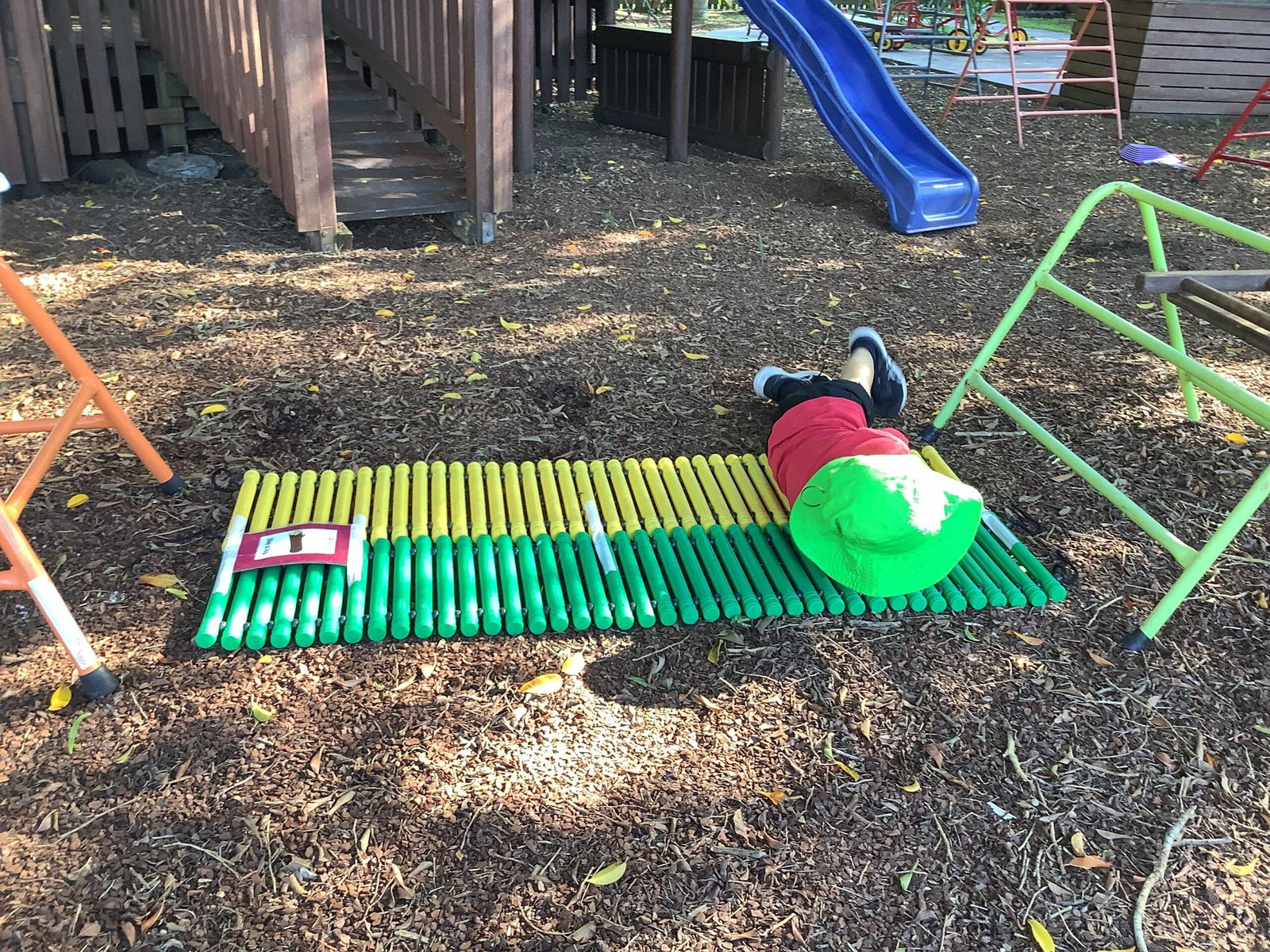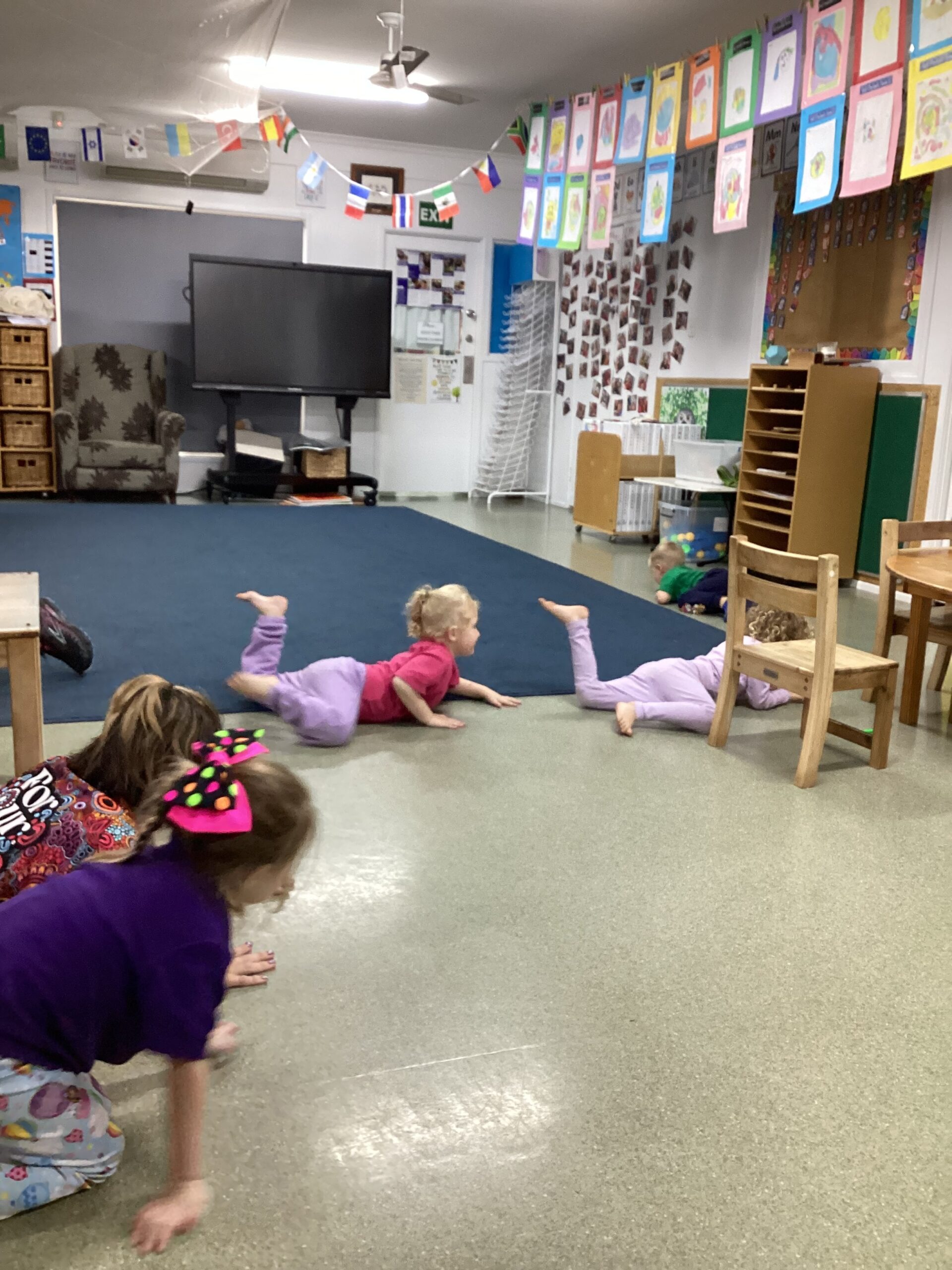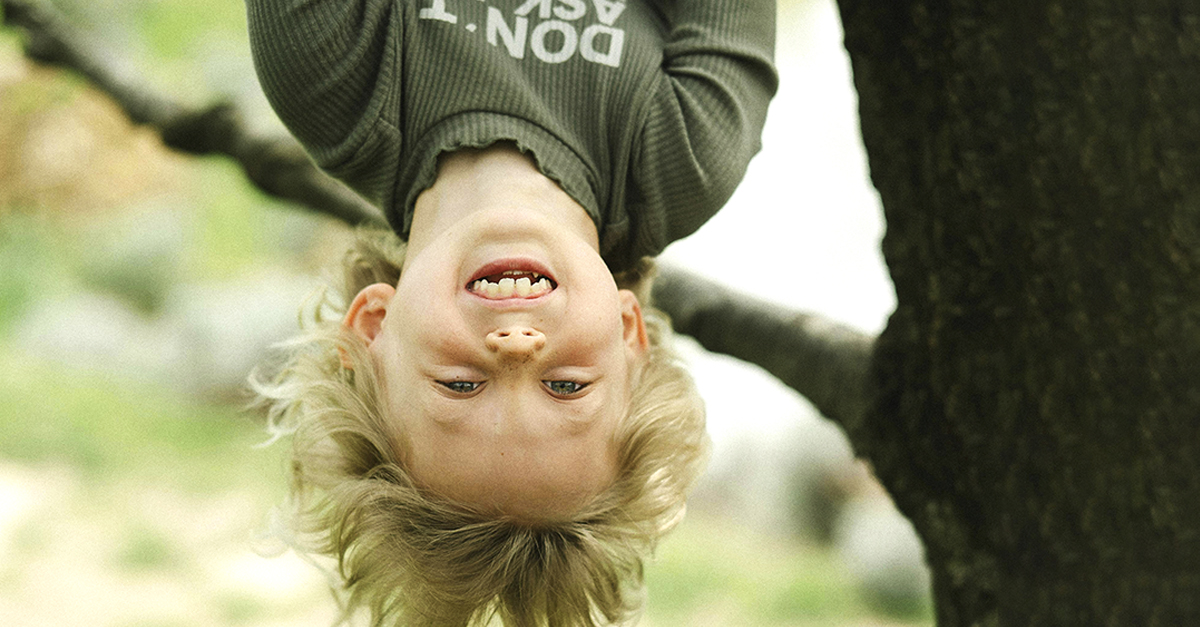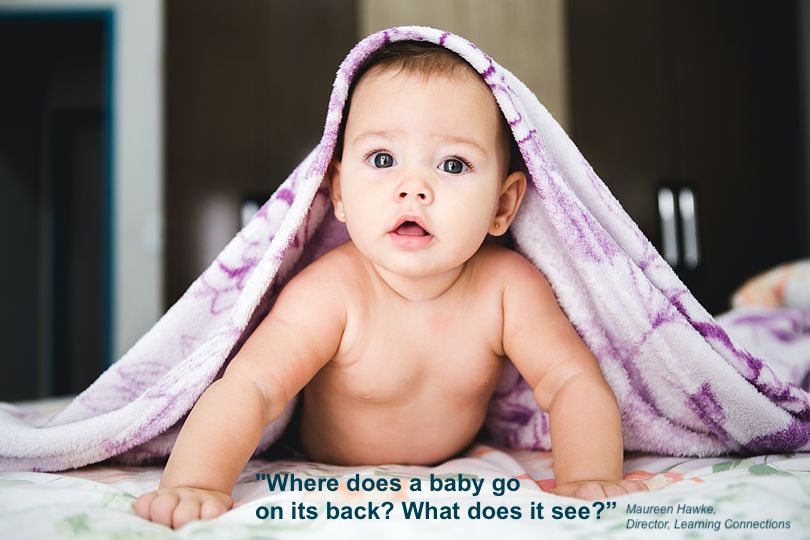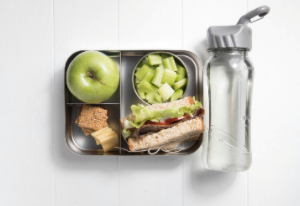Movement is the most essential component of development. A baby innately wants to master control of his movement so that eventually he can move freely in an upright position against gravity.
The first visible step to gaining this independence is to achieve head control. A newborn infant has very little head control. If you hold the infants wrists and lift them up from a back lying position to a sitting position their head falls back. By around two months the head should stay in the midline and not drop back when lifted and by six months there should be no head lag. Lying on the tummy the baby gains head control. Without daily tummy and floor time there is little opportunity to practise this skill. With the advent of baby capsule type car seats, many infants are spending hours a day in a semi upright position, with the spine curved and the head supported. This limits the opportunities the baby has to learn head control, as the control occurs through the assistance of the equipment and not through the baby’s own experience.
Lying flat and learning to lift the head is also important because it helps the vestibular sense to mature. The vestibular sense controls balance, equilibrium and orientation. It also has a strong influence on the development of muscle tone and vision. It is difficult for a baby with low muscle tone to lift his head against gravity. They can compensate for this by lifting their shoulders to support the head. This in turn has an effect on vestibular and ocular motor development and effects balance and eye movements.
Without adequate movement the senses do not develop a complete ability to process efficiently, which leads to difficulties with focus, attention, comprehension, reading, writing and various behavioural challenges.
It is important that we learn to understand the environment around us, because the better we process and make sense of our surroundings the more resources we have to function well. The senses provide the stimulus to make sense of our world. The far sense; consisting of vision, hearing, taste, smell and touch, let us know what is going on around us, so that we can respond appropriately. The near senses, which in addition to the vestibular sense, consist of the proprioceptive, tactile and interoceptive senses; provide information about what is happening inside our own bodies.
It is the near senses that develop first in-utero and act as the foundation for the far senses. When they operate efficiently they let us know where we are in space, coordinating balance and movement and interpreting sensations such as thirst and hunger. When these sense operate well they underpin an efficient and strong development of the child.
Intrauterine reflexes and primitive [or infant] reflexes are automatic, stereotypical reactions to specific stimuli-either a reaction to a sensory input or a change of position. These reflexes emerge and gradually develop in utero and are active for the first few months after birth. As the central nervous system matures and connections to higher levels of the brain develop, these reflexes gradually diminish and their influence on movement decreases.
The reflexes should be active at birth in the early months of life, gradually suppressed so that we can learn to move independently and then transformed into postural reflexes that enable us to be upright and move against gravity.
Our postural reflexes develop on the foundations of primitive reflexes. The better the primitive reflexes have done their job of laying foundations, the more resources the postural reflexes have to sustain balance, stability and flexibility throughout the body.
If the primitive reflexes are still retained at some level and the postural reflexes are not well established, functioning can be affected in many areas, e.g.:
- Difficulty to maintain postural control when standing, sitting or moving
- Balance
- Ability to sit still
- Co-ordination and motor skills
- Eye movement control – necessary for reading
- Eye-hand co-ordination – necessary for writing
- Spatial skills
- Organisation
- Concentration and focus
- Emotional stability
- Impulse control
Dempsey, M. GymbaROO Conference, Melbourne. July 2013



